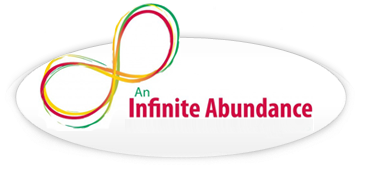The sixth of a series of Autoimmune Disorders. My reasons for this series is twofold. First, to make people aware of the many Autoimmune Disorders and to give some history of the well known or more prevalent ones. It is noted that 1 in 5 Americans have been diagnosed with at least one Autoimmune Disorder, of which 75% are women. Second, allowing people to be aware, especially those who are affected by Autoimmune Disorders, that they don’t need to live with the residual aches and pains, inflammation, stress, depression, and anxiety. There are alternative options that work alongside conventional therapies. My focus, as a Reiki Practitioner and Wellness Advocate, is to educate and better help those who are suffering needlessly. I teach a class on the benefits of Reiki Energy Healing for those who have been diagnosed with Autoimmune Disorders. For more information and to register, please contact me at 860-593-5257.
Hashimoto’s Thyroiditis
Also called Hashimoto’s disease, Hashimoto’s thyroiditis is an autoimmune disease, a disorder in which the immune system turns against the body’s own tissues. In people with Hashimoto’s, the immune system attacks the thyroid. This can lead to hypothyroidism, a condition in which the thyroid does not make enough hormones for the body’s needs.
Located in the front of your neck, the thyroid gland makes hormones that control metabolism. This includes your heart rate and how quickly your body uses calories from the foods you eat.
Causes of Hashimoto’s Thyroiditis
The exact cause of Hashimoto’s is not known, but many factors are believed to play a role. They include:
Genes. People who get Hashimoto’s often have family members who have thyroid disease or other autoimmune diseases. This suggests a genetic component to the disease.
Hormones. Hashimoto’s affects about seven times as many women as men, suggesting that sex hormones may play a role. Furthermore, some women have thyroid problems during the first year after having a baby. Although the problem usually goes away, as many as 20% of these women develop Hashimoto’s years later.
Excessive iodine. Research suggests certain drugs and too much iodine, a trace element required by your body to make thyroid hormones, may trigger thyroid disease in susceptible people.
Radiation exposure. Increased cases of thyroid disease have been reported in people exposed to radiation, including the atomic bombs in Japan, the Chernobyl nuclear accident, and radiation treatment for a form of blood cancer called Hodgkin’s disease.
Symptoms of Hashimoto’s Thyroiditis
Hashimoto’s symptoms may be mild at first or take years to develop. The first sign of the disease is often an enlarged thyroid, called a goiter. The goiter may cause the front of your neck to look swollen. A large goiter may make swallowing difficult. Other symptoms of an underactive thyroid due to Hashimoto’s may include:
- weight gain
- fatigue
- paleness or puffiness of the face
- joint and muscle pain
- constipation
- inability to get warm
- difficulty getting pregnant
- joint and muscle pain
- hair loss or thinning, brittle hair
- irregular or heavy menstrual periods
- depression
- slowed heart rate
Because the symptoms of Hashimoto’s thyroid may be similar to those for other medical conditions, it is important to see your doctor for a diagnosis.
Treatments for Hashimoto’s Thyroiditis
There is no cure for Hashimoto’s, but replacing hormones with medication can regulate hormone levels and restore your normal metabolism.
The pills are available in several different strengths. The exact dose your doctor prescribes will depend on a number of factors, including:
- age
- weight
- severity of hypothyroidism
- other health problems
- other medicines that may interact with synthetic thyroid hormones
Once you start treatment, your doctor will order a lab test called a thyroid-stimulating hormone (TSH) test to monitor thyroid function and help ensure you are getting the right dose. Because thyroid hormones act very slowly in the body, it may take a few months for symptoms to go away and your goiter to shrink. However, large goiters that do not improve may make it necessary to remove the thyroid gland.
What Are the Holistic and Alternative Modalities for Hashimoto’s?
Reiki Energy Healing is one of the holistic and alternative modalities to help decrease or release residual inflammation, aches and pains, and mental and emotional stresses due to chronic Autoimmune Disorders.
Reiki supports and enhances the body’s ability to heal itself. It works equally well whether it is used to help accelerate the body’s healing process while recovering from illness or as a form of preventive self-care. It is one of the most powerful techniques known for alleviating stress, anxiety, and pain. It naturally creates deep states of relaxation and feelings of well-being. Reiki supports and strengthens the immune system’s ability to fight infection of any kind, including viruses and bacteria. It is not just for treating physical problems. It works with the body’s natural healing wisdom to restore states of inner peace and balance at all levels… physical, emotional, mental, and spiritual.
Those affected with Autoimmune Disorders quite often deal with stress, anxiety, depression, lack of self-confidence and self-esteem, toxic overload from pharmaceutical medications, lack of mobility, and/or decreased social activities. Reiki can release these symptoms, increase mobility, and facilitate a return to a healthier and happier lifestyle.
Other modalities may include meditation, sound healing, pranic healing, crystal healing, EFT/Tapping, yoga, qi gong, acupressure/acupressure, and dietary changes.
Information on Hashimoto’s is from WebMD.com


